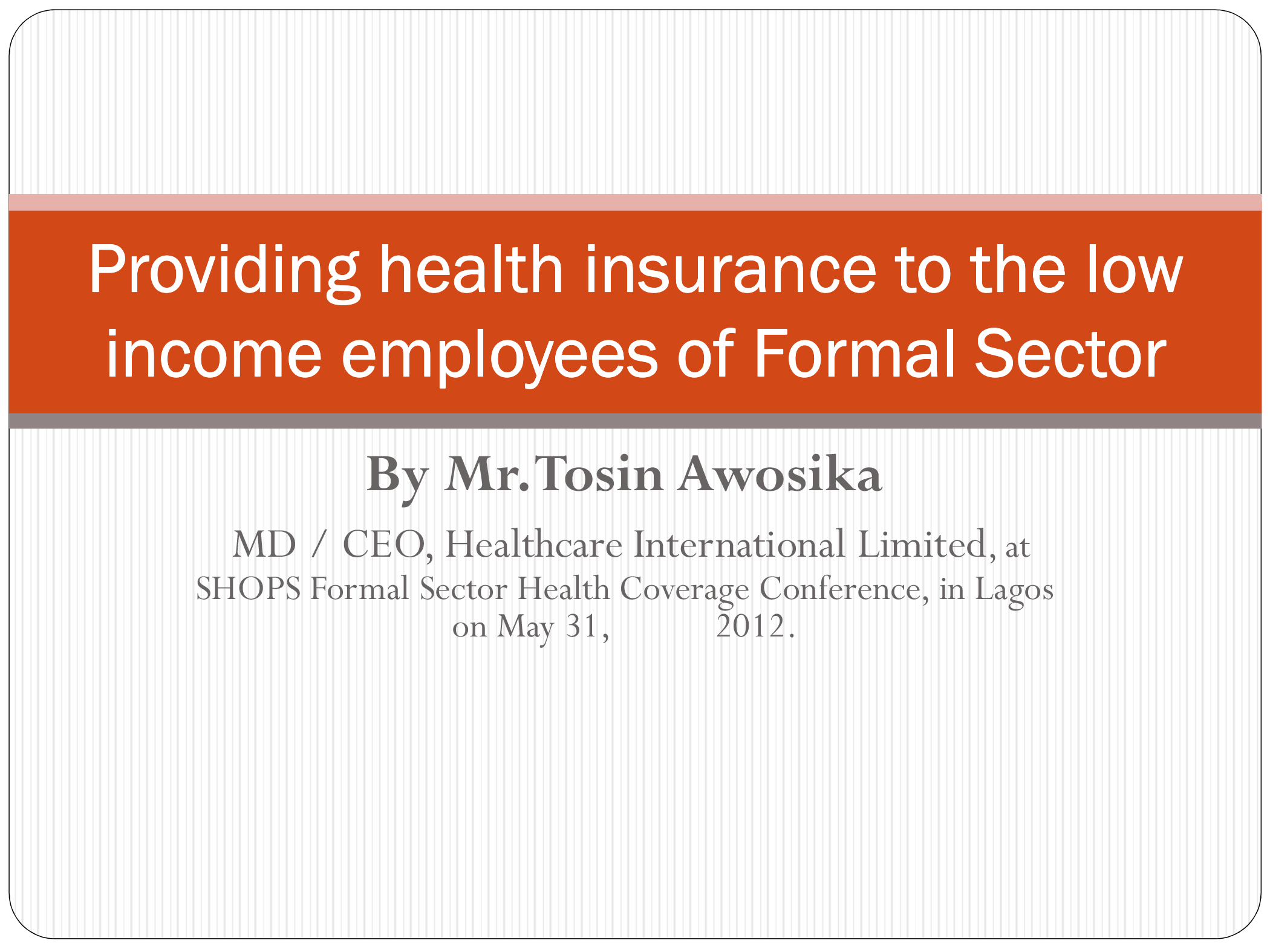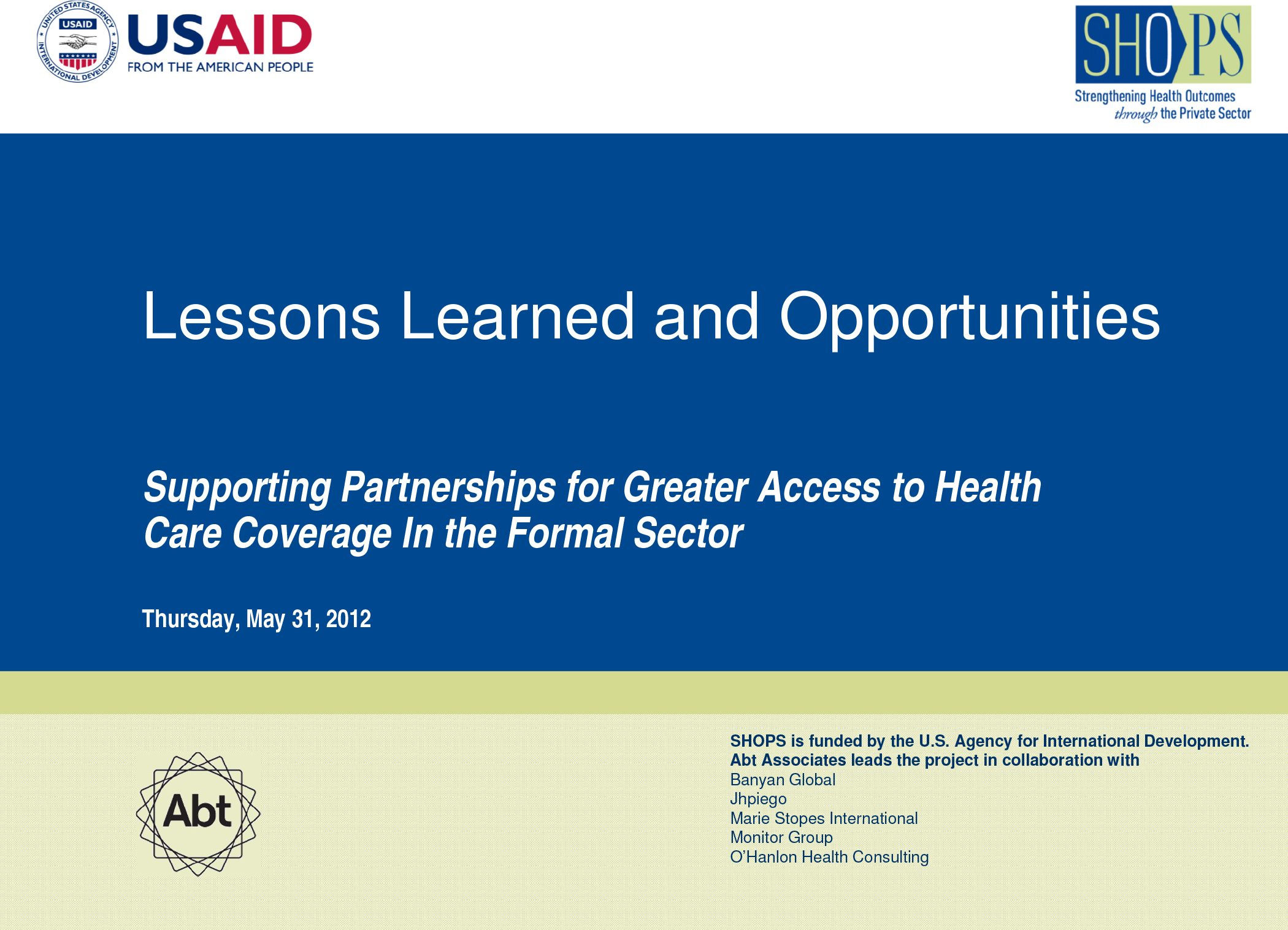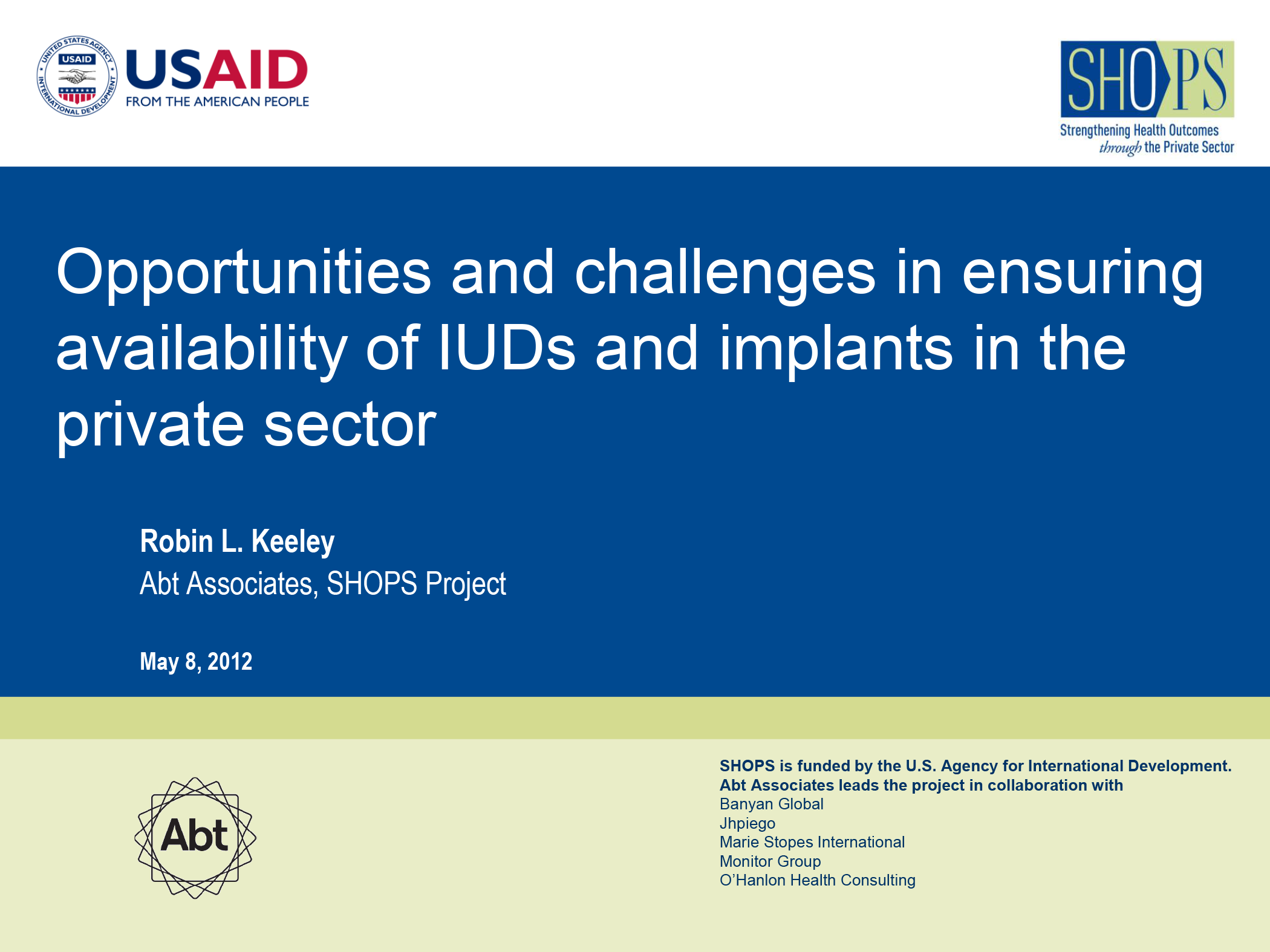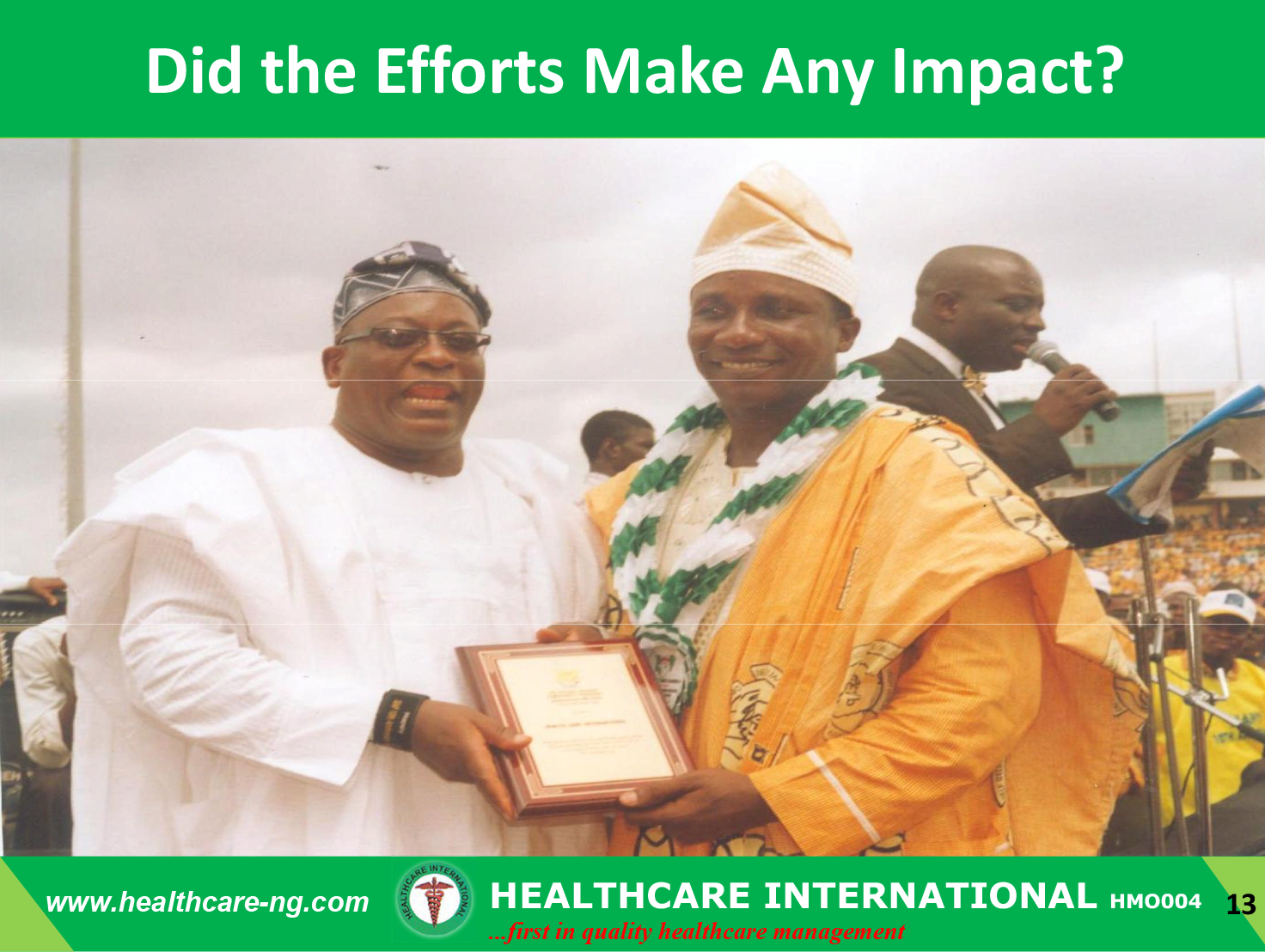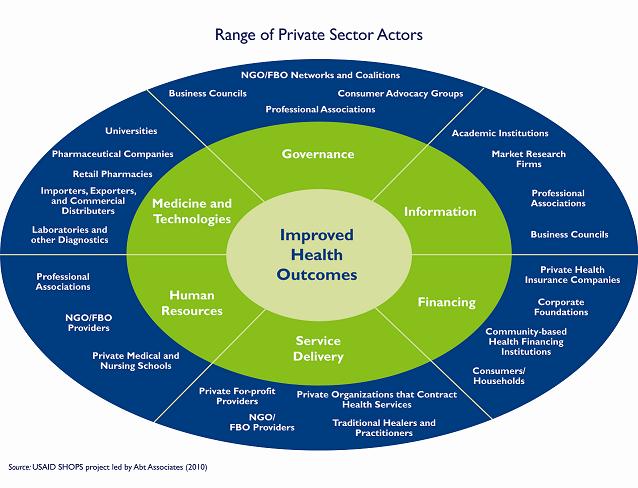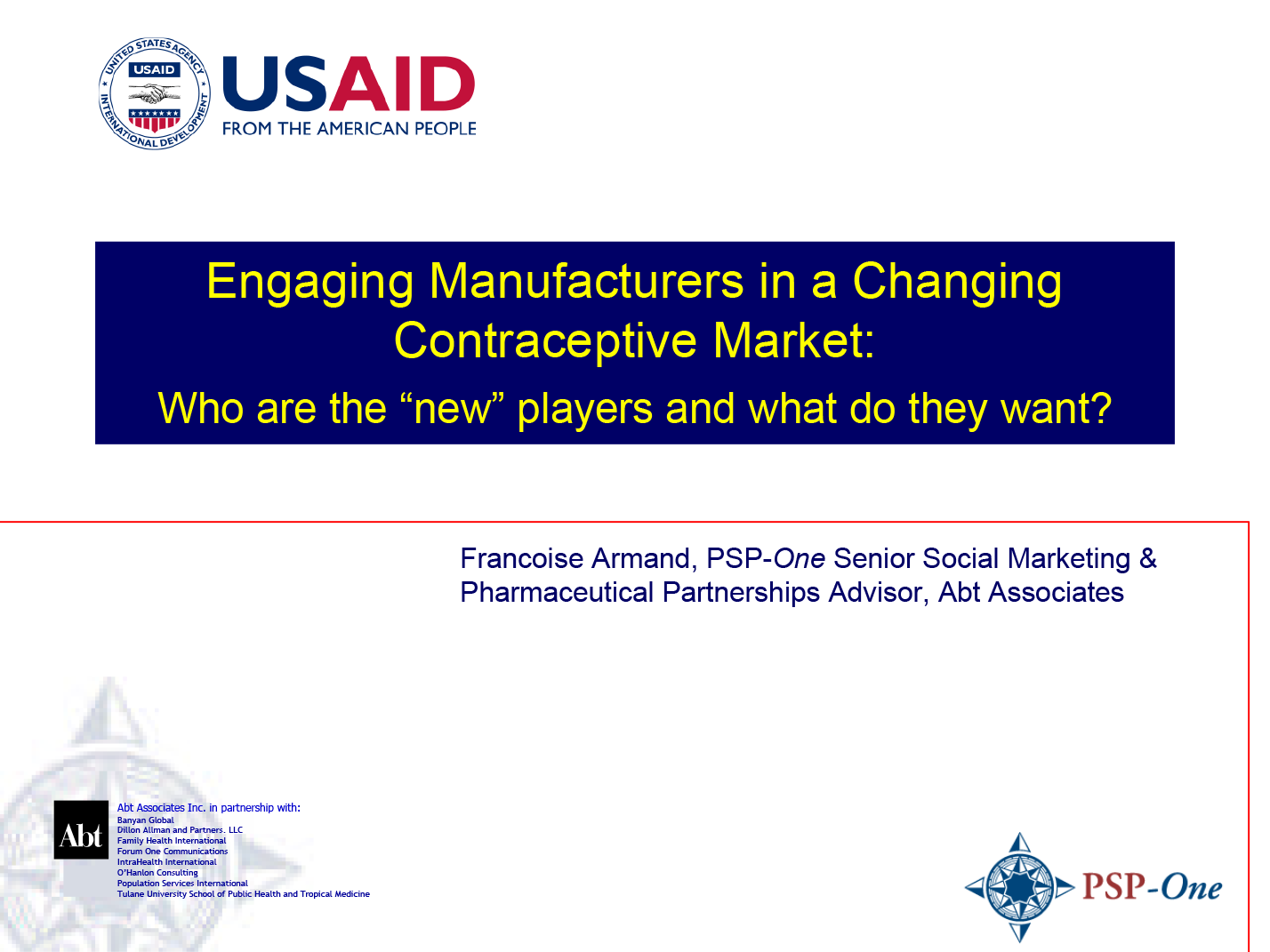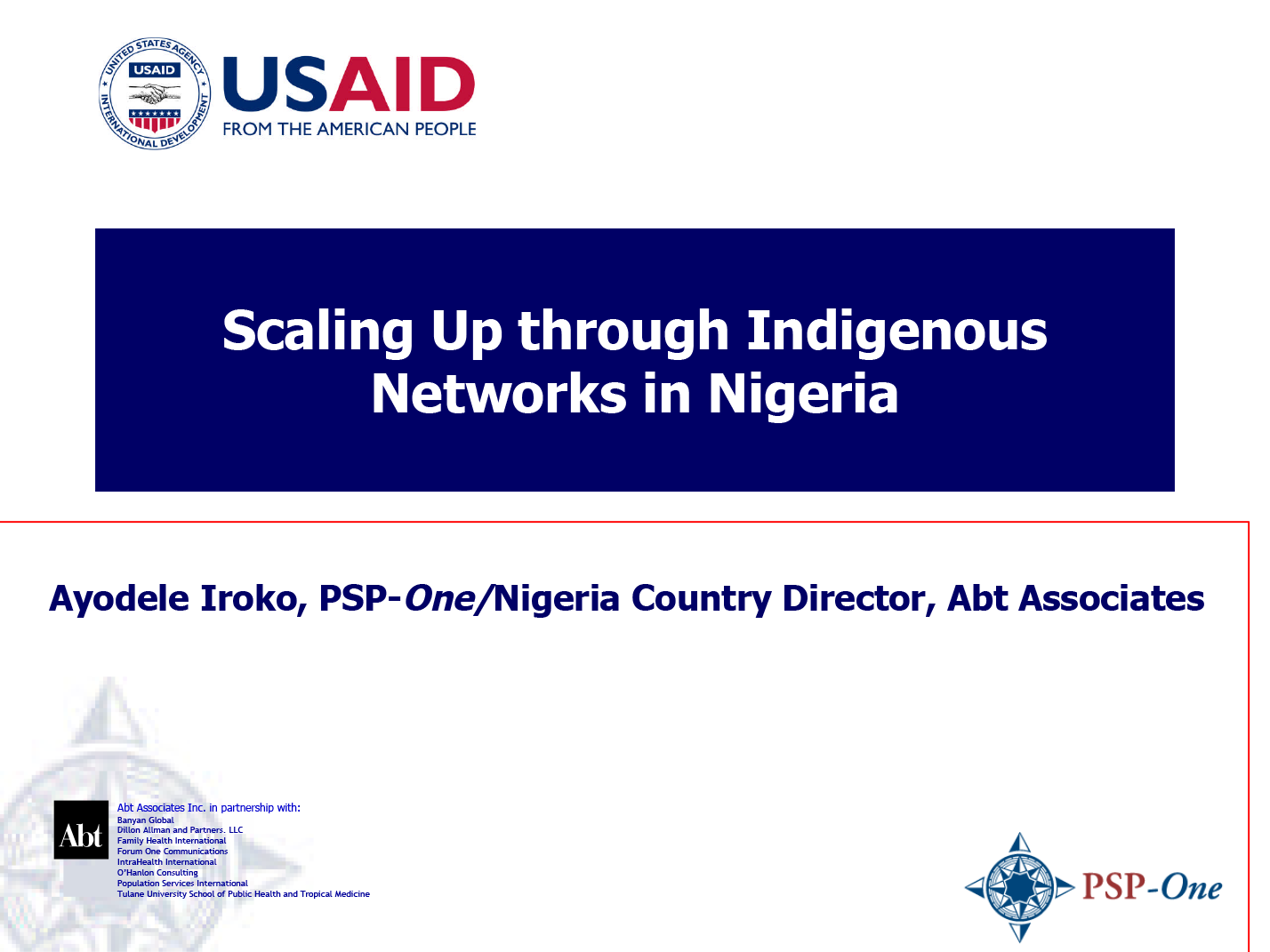
Resource Library
Providing Health Insurance to the Low Income Employees of Formal Sector
This presentation discusses the benefits of and challenges to providing health insurance to low-income earners with a focus on Nigeria.
Resource Type : Presentation
Country : Nigeria
Year : 2012-05-31T00:00:00
Language : English
Project : SHOPS

Resource Library
Lessons Learned and Opportunities: Supporting Partnerships for Greater Access to Health Care Coverage in the Formal Sector in Nigeria
This presentation reviews the rationale for companies to provide health insurance and the role that governments, private companies, employees, and donors can play in the creation of low-cost health insurance products. It also reviews challenges to creating such products and ways to address them. It was compiled during the workshop based on participants' input in Nigeria.
Resource Type : Presentation
Country : Nigeria
Year : 2012-05-31T00:00:00
Language : English
Project : SHOPS

Resource Library
Opportunities and Challenges in Ensuring Availability of IUDs and Implants in the Private Sector
Robin Keeley discusses the major barriers to provision of long-acting and permanent family planning methods, including low levels of demand, commodity shortages, price, and regulation. Keeley is the technical coordinator for the SHOPS Nigeria Associate Award, Strengthening Private Sector Family Planning and Reproductive Health (SPS FP/RH) project. Download a PDF of the presentation by clicking on the download button, or view a recording of the presentation.
Resource Type : Presentation
Country : Nigeria
Year : 2012-05-10T00:00:00
Language : English
Project : SHOPS

Resource Library

SHOPS project expert: Ayodele Iroko, Nigeria Program Director
Ayodele Iroko talks about the impact of health insurance on family planning as a preventive measure and the need to incorporate men into the discussion. She refers to "PSP-One," the private sector partnership project that was the predecessor to SHOPS.
Resource Type : Video
Country : Nigeria
Year : 2011-09-06T12:00:00
Language : English
Project : SHOPS

Resource Library
Partnering with Microfinance Institutions in Financing Health Care Services for the Informal Sector
On June 13, 2011, SHOPS sponsored a satellite event on health financing - "Wealth and Health: Leveraging Microfinance for Better Health Outcomes" at the Global Health Council conference. Ayodeji Ajiboye, MD; Head, Lagos Office, Healthcare International (HCI) presented on HCI's partnership with a local microfinance institution to develop and sell a health insurance product for informal workers.
Resource Type : Presentation
Country : Nigeria
Year : 2011-06-10T18:06:00
Language : English
Project : SHOPS

Resource Library
Capitation Income Can Improve Access to Finance for Healthcare Providers
A narrated presentation contributed by Abayomi Sule of Hygeia to the SHOPS Access to Finance e-Conference held on March 29-30, 2011. The presentation examines the Hygenia Community Health Plan in Nigeria.
Resource Type : Presentation
Country : Nigeria
Year : 2011-03-29T00:00:00
Language : English
Project : SHOPS

Resource Library
Strengthening Health Systems by Engaging the Private Health Sector: Promising HIV/AIDS Partnerships
Strengthening Health Systems by Engaging the Private Health Sector: Promising HIV/AIDS Partnerships describes the variety of private sector actors operating in health systems and the policy instruments with which to engage them. The brief includes examples of partnerships from Lesotho, Nigeria, South Africa, and other sub-Saharan countries.
Resource Type : Brief
Country : Nigeria, South Africa
Year : 2011-01-18T00:00:00
Language : English
Project : SHOPS

Resource Library
Engaging Manufacturers in a Changing Contraceptive Market: Who are the "new" players and what do they want?
PSP-One End-of-Project Conference The Next Frontier: Private Sector Participation in the Global AIDS Response
Resource Type : Presentation
Country : Jordan, Nigeria
Year : 2009-09-28T14:30:00
Language : English
Project : SHOPS

Resource Library
Scaling Up through Indigenous Networks in Nigeria
PSP-One End of Project Conference Private Provider Networks: Bringing Order to Chaos
Resource Type : Presentation
Country : Nigeria
Year : 2009-09-28T14:00:00
Language : English
Project : SHOPS

Resource Library
Report of the Regional Workshop on Building Public-Private Linkages to Advance Priority Health Services in Africa
1.1 ANTECEDENTS TO NETWORK FOR AFRICA AND ADDIS ABABA REGIONAL WORKSHOP The Private Sector Partnerships-One (PSP-One) project and the World Health Organization's Department of Reproductive Health and Research (WHO/RHR) continue to work together in support of increasing access to reproductive health and family planning (RH/FP) through the private health sector in Africa. In December 2006, PSP-One and WHO/RHR co-sponsored a consultation meeting on Public Policy and Reproductive Health Franchising and produced a joint guidance note on the evidence and future direction of private provider networks and franchising of RH/FP services (http://www.who.int/reproductive-health/healthsystems/meeting06.htm). Building on the success of this first policy meeting, the organizations designed a regional workshop focusing on Africa. With funding from the United States Agency for International Development's (USAID's) Repositioning Initiative,1 the PSP-One project is leading a two-year initiative — Network for Africa — that will build public-private linkages to advance universal access to RH in the region. WHO/RHR and PSP-One co-sponsored a regional workshop, held May 7-10, 2008, in Addis Ababa, Ethiopia, as one of the Network's first activities. 1.2 OVERVIEW OF ADDIS ABABA REGIONAL WORKSHOP The purpose of the workshop was to develop national capacity to design and manage partnerships with private sector stakeholders and provide an overview of the selected policy instruments commonly available to Ministries of Health (MOHs) and the public-private partnership (PPP) units. The workshop curriculum was based upon a World Bank Institute course on public policy for the private sector, which was revised for the African context and substantially updated with new information to reflect current trends in private sector provision of health services. Workshop objectives included:
- Developing existing public sector capacity to engage the private sector in the provision of RH/FP and HIV/AIDS-related services in selected Anglophone African countries
- Creating a network for experiential learning across countries on challenges in strengthening PPPs for RH/FP and HIV/AIDS
- Strengthening existing relationships and linkages across priority programs within African MOHs to work effectively with the private sector in support of national health goals (in general) and RH/FP (in particular)
- Identifying key actions and important next steps for participant countries to design, develop, and manage PPPs following the workshop
Participating countries: Teams of MOH officials from Ethiopia, Ghana, Kenya, Nigeria, United Republic of Tanzania, and Uganda attended the Addis workshop. The teams comprised: (i) the RH/FP director, (ii) the HIV/AIDS director, and (iii) the PPP unit director and/or PPP adviser. In addition, several USAID Health, Population and Nutrition (HPN) officers and President's Emergency Plan for AIDS Relief (PEPFAR) PPP advisers from these countries attended. (See Annex A for a directory of the participants.) Overview of workshop agenda: The workshop was designed around three thematic areas (See Annex B for a more in-depth discussion of the workshop agenda and methodology.):
- Making the case for why it is important to work with the private health sector as a means to help address health challenges in RH/FP and HIV/AIDS2.
- Offering a concise overview of the policy instruments the public sector can utilize to engage and encourage the private health sector to deliver RH/FP and HIV/AIDS services
- Designing a partnering process while, at the same time, stressing the management and leadership skills required to implement and sustain a PPP
Resource Type : Report
Country : Ethiopia, Ghana, Kenya, Nigeria, Tanzania, Uganda
Year : 2008-12-01T22:15:00
Language : English
Project : SHOPS
Pagination
- Previous page
- Page 11
- Next page


